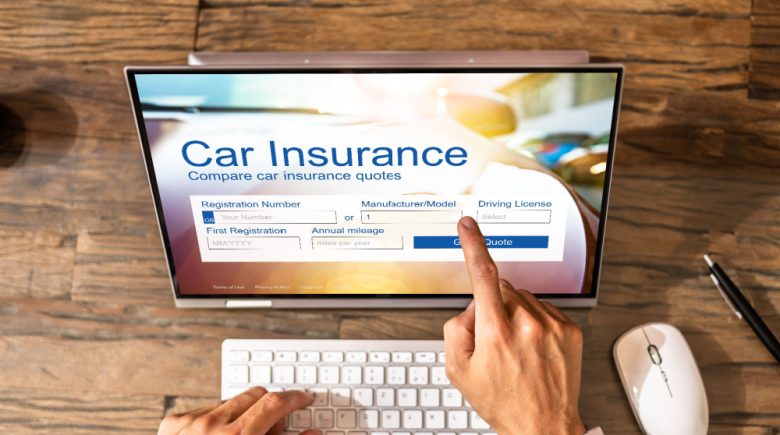Owning a vehicle necessitates purchasing car insurance, yet deciphering insurance quotes can prove perplexing. The abundance of policies and options available makes it challenging to discern your requirements and secure the most advantageous deal. This guide demystifies car insurance quotes, empowering you to make an informed decision and obtain the necessary coverage.
Understanding Car Insurance
Car insurance is a pact between you and the insurer, designed to protect your financial wellbeing in the aftermath of an accident or theft. By paying a premium, you receive the insurer’s commitment to shoulder the costs of damages or injuries you might inflict on others or their possessions. Most states mandate car insurance, and the absence of it could lead to penalties or legal issues.
The Importance of Car Insurance
Legally, the individual at fault in an accident is obliged to compensate for the damages incurred. Without car insurance, you risk financial and legal repercussions if involved in an accident. Car insurance serves as a safeguard, covering the costs of damages to ensure your financial and legal protection.
Exploring Car Insurance Types
Car insurance policies vary, each offering distinct coverage and costs. Key types include:
Liability Insurance: This covers damages you cause to others or their property, encompassing both property damage and bodily injury liabilities. It’s legally mandated, though options like theft coverage are discretionary, potentially lowering premiums if omitted.
Collision Insurance: Provides protection for your vehicle against accident-induced damages, as well as any injuries you may cause. It can be added to a standard liability policy or purchased separately.
Comprehensive Insurance: Covers losses from non-accident incidents, such as theft or vandalism, and can complement a personal policy or be acquired standalone.
Personal Injury Protection (PIP): Also known as no-fault coverage, PIP covers medical expenses and lost wages for you, your passengers, and other injured parties in an accident for which you are liable.
Medical Payments (Med Pay): A form of no-fault insurance that pays for your medical expenses and lost wages following an accident, distinct from PIP and not mandatory in most states, but available as an additional option.
Uninsured/underinsured motorist coverage protects you when the other driver lacks adequate insurance to cover damage costs.
Determining Factors for Car Insurance Quotes
Insurance companies assess several criteria to set your premium, including:
Age: Younger drivers often face higher rates due to perceived risk.
Driving Record: A history of accidents or violations can increase premiums.
Location: Your residence can influence rates, with some areas having higher risk factors.
Vehicle Type: Certain makes and models may be deemed riskier, affecting rates.
Credit Score: A lower credit score can result in higher premiums.
Obtaining Car Insurance Quotes
Securing quotes is straightforward, with most insurers offering online or phone options. Providing accurate information about your driving history, vehicle, and coverage preferences ensures precise quotes, facilitating informed coverage decisions.
Comparing Car Insurance Quotes
Review multiple quotes to identify the best value, considering coverage level, deductible, and premium. Evaluate the insurer’s customer service and reputation, inquire about discounts, and don’t shy away from negotiating premiums, especially if consolidating policies could offer savings.
Tips for Reducing Car Insurance Costs
Shop Around: Always compare quotes to ensure you’re getting the best deal.
Bundle Policies: Discounts may be available for combining auto with other insurance types.
Increase Your Deductible: A higher deductible can reduce your premium, but ensure it’s affordable in case of an accident.
Maintain a Good Credit Score: This can lead to lower insurance costs.
Be Wary of Fraud: Fraudulent claims can impede your ability to secure coverage.
Inquire About Discounts: Look for discounts for safe driving, multiple vehicles, or student drivers.
Conclusion
Car insurance is an essential, manageable expense for drivers. By comprehending coverage types and premium-influencing factors, you can make well-informed insurance choices. Shopping around and considering cost-saving strategies can lead to significant savings. With appropriate coverage, you can drive with confidence, knowing you’re financially protected in case of accidents or theft.
Owning a vehicle necessitates purchasing car insurance, yet deciphering insurance quotes can prove perplexing. The abundance of policies and options available makes it challenging to discern your requirements and secure the most advantageous deal. This guide demystifies car insurance quotes, empowering you to make an informed decision and obtain the necessary coverage.
Understanding Car Insurance
Car insurance is a pact between you and the insurer, designed to protect your financial wellbeing in the aftermath of an accident or theft. By paying a premium, you receive the insurer’s commitment to shoulder the costs of damages or injuries you might inflict on others or their possessions. Most states mandate car insurance, and the absence of it could lead to penalties or legal issues.
The Importance of Car Insurance
Legally, the individual at fault in an accident is obliged to compensate for the damages incurred. Without car insurance, you risk financial and legal repercussions if involved in an accident. Car insurance serves as a safeguard, covering the costs of damages to ensure your financial and legal protection.
Exploring Car Insurance Types
Car insurance policies vary, each offering distinct coverage and costs. Key types include:
Liability Insurance: This covers damages you cause to others or their property, encompassing both property damage and bodily injury liabilities. It’s legally mandated, though options like theft coverage are discretionary, potentially lowering premiums if omitted.
Collision Insurance: Provides protection for your vehicle against accident-induced damages, as well as any injuries you may cause. It can be added to a standard liability policy or purchased separately.
Comprehensive Insurance: Covers losses from non-accident incidents, such as theft or vandalism, and can complement a personal policy or be acquired standalone.
Personal Injury Protection (PIP): Also known as no-fault coverage, PIP covers medical expenses and lost wages for you, your passengers, and other injured parties in an accident for which you are liable.
Medical Payments (Med Pay): A form of no-fault insurance that pays for your medical expenses and lost wages following an accident, distinct from PIP and not mandatory in most states, but available as an additional option.
Uninsured/underinsured motorist coverage protects you when the other driver lacks adequate insurance to cover damage costs.
Determining Factors for Car Insurance Quotes
Insurance companies assess several criteria to set your premium, including:
Age: Younger drivers often face higher rates due to perceived risk.
Driving Record: A history of accidents or violations can increase premiums.
Location: Your residence can influence rates, with some areas having higher risk factors.
Vehicle Type: Certain makes and models may be deemed riskier, affecting rates.
Credit Score: A lower credit score can result in higher premiums.
Obtaining Car Insurance Quotes
Securing quotes is straightforward, with most insurers offering online or phone options. Providing accurate information about your driving history, vehicle, and coverage preferences ensures precise quotes, facilitating informed coverage decisions.
Comparing Car Insurance Quotes
Review multiple quotes to identify the best value, considering coverage level, deductible, and premium. Evaluate the insurer’s customer service and reputation, inquire about discounts, and don’t shy away from negotiating premiums, especially if consolidating policies could offer savings.
Tips for Reducing Car Insurance Costs
Shop Around: Always compare quotes to ensure you’re getting the best deal.
Bundle Policies: Discounts may be available for combining auto with other insurance types.
Increase Your Deductible: A higher deductible can reduce your premium, but ensure it’s affordable in case of an accident.
Maintain a Good Credit Score: This can lead to lower insurance costs.
Be Wary of Fraud: Fraudulent claims can impede your ability to secure coverage.
Inquire About Discounts: Look for discounts for safe driving, multiple vehicles, or student drivers.
Conclusion
Car insurance is an essential, manageable expense for drivers. By comprehending coverage types and premium-influencing factors, you can make well-informed insurance choices. Shopping around and considering cost-saving strategies can lead to significant savings. With appropriate coverage, you can drive with confidence, knowing you’re financially protected in case of accidents or theft.



